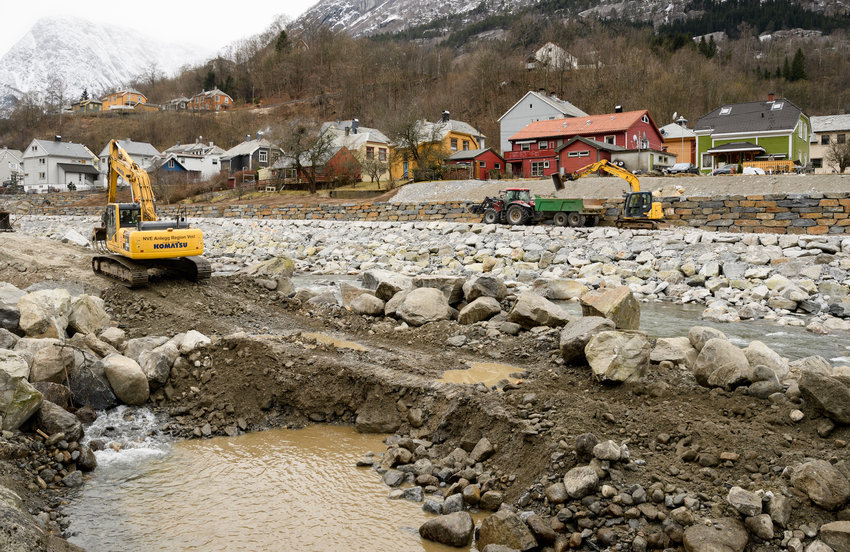
Tell us a bit about your background
I grew up in a small town in northern Quebec and studied climate science in Montreal and then New York city. My training is in the field of climate dynamics, where I use simplified climate models to understand the role of atmospheric waves in climate. My research eventually brought me to the Geophysical institute in Bergen where I did a postdoc. Here, I focused on understanding how atmospheric waves affect the rapidly changing Arctic under global warming. I also spent a lot of time learning to speak Norwegian.
What is your role at NORCE?
Near the end of my postdoc, I decided I needed to work on more practical research topics where I could make a bigger impact on society. I was then lucky enough to do just that by becoming a researcher at NORCE as part of Climate futures. Here, I work together with companies, organizations, and the public to figure out how they can adapt to climate change and reduce their climate risk.
In what way are you/ your organisation involved in Climate Futures?
As part of NORCE and climate futures, I’m working with the largest private insurance company in the Nordic countries, Tryg forsikring, to reduce their climate risk. In collaboration with two climate futures partners, Norges handelsskole NHH and Safetec, we are trying to answer two specific research questions: how can we build a statistical model that converts climate data into a forecast of insurance claims? and given a forecast of insurance claims, how can we use it to reduce Tryg’s climate risk?
What do you like best about your job?
I think my job has a possibility of making a real impact. I’m closer to those who make decisions that matter, and I have the possibility of impacting these decisions in positive way. I didn’t have this before in traditional academia and it’s very exciting. I’m also learning a lot and seeing first-hand how challenging it is to adapt to climate change. My Norwegian is also getting better and better every day.
What do you think about the possibilities that can come out of Climate Futures?
I’ve come to believe that the private sector can be a powerful agent for change. So, given the magnitude of the problem of climate adaptation, and climate futures’ unique position in bridging academia and the private sector, I think climate futures has a real opportunity to help make society more resilient. We can also write some really cool academic papers along the way.

